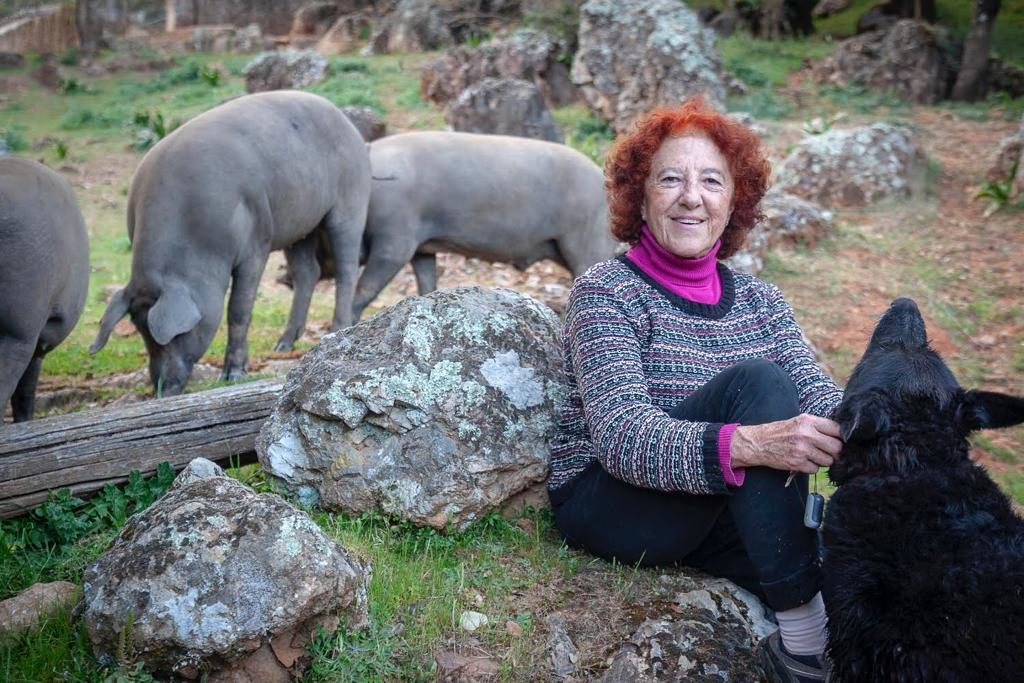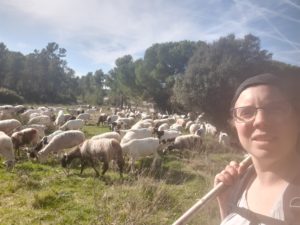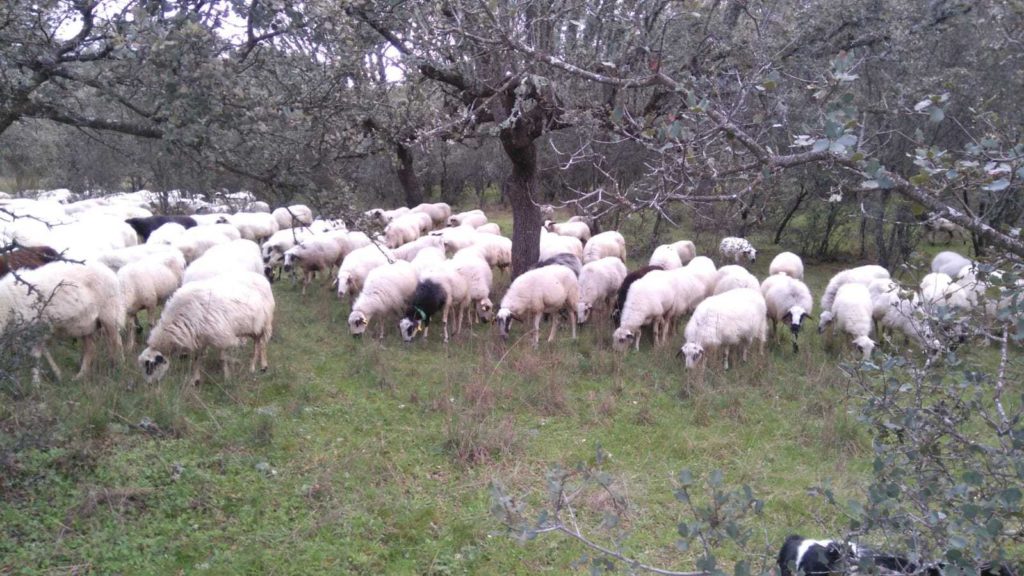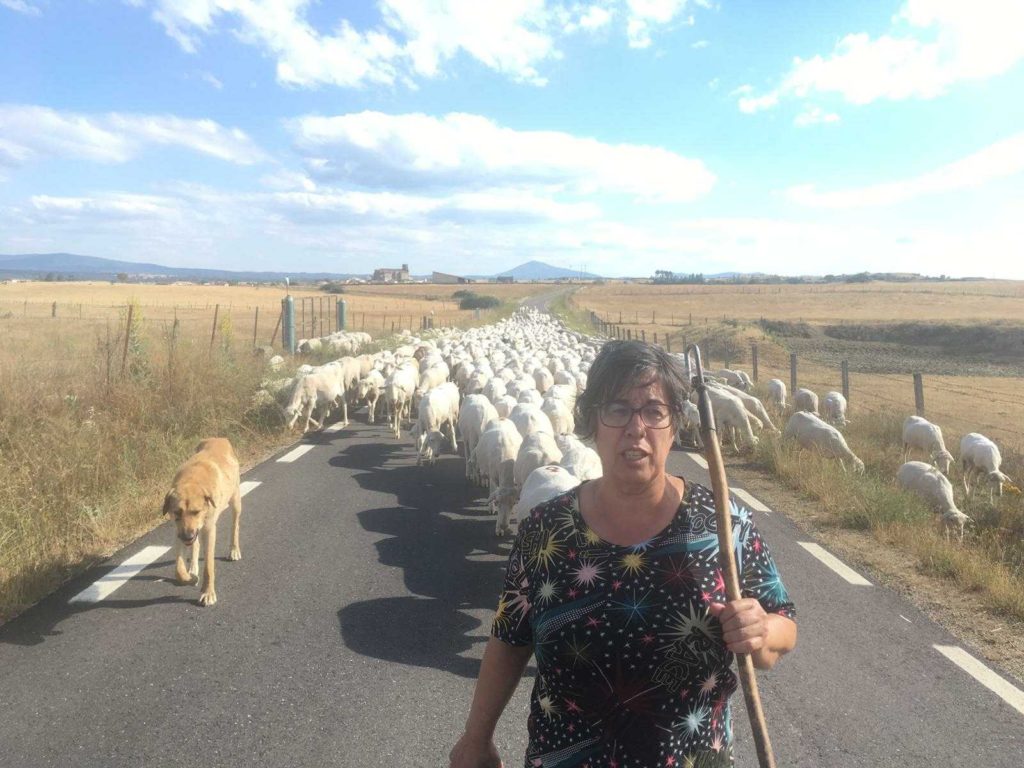“Ganaderas en Red” is a group of extensive livestock farming and pastoralism professional women who support each other both personally and at work. They seek raising their voice to the institutions. Like the rest of the meat industry, they try not to be accused of being guilty of climate change in an environment that they respect and preserve. From Anafric we want to value their position, their collective work and their defence of the industry because as we understand, we are part of the solution and not the problem.
–How many livestock farmers are involved in the collective and when did it all began?
We are now about 170 people at “Ganaderas en Red” cattle ranchers. We started in 2015 with about 20 colleagues who joined noticing the lack of a livestock farmers women group and the need for mutual support.

–Livestock farming (as a profession), does it have gender?
Like all work, livestock has gender, but mainly imposed by traditions rather than the current reality. “Ganaderas en Red” is showing that we do the same tasks as men with lots of energy. We are giving a new turn to our herds to improve them and remain respectful of the natural environment by defending the rural world
“Extensive farming is feed by closer resources. It helps maintaining the ecosystems and its high natural value because fossil carbon consumption decreases and that is a positive fact. ”
–Are farmer born or made?
Both, we have colleagues who have taken over from their family and others that started from scratch and all have a place in “Ganaderas en Red”. Usually the “new livestock farmers” have a more open-minded vision and those who have seen livestock farming since childhood have more experience. This makes us have a lot to share and learn new things every day from all of them.
-And their group not only has the function that they are respected, but also fight so that different groups and institutions also respect the profession. They have many fronts ahead but the most important is that the livestock sector is accused of being the culprit of climate change. What arguments put on the table to defend livestock?

Tare many reports that lights out that extensive farming does not influence climate change but also reverses this process. The herds of our colleagues are raised in extensive fields and direct contact with the environment; therefore, the livestock load is optimal for the grass ground used. It avoids any biodiversity damage.
Extensive cattle farming is feed by resources at their reach (pastures, fallows), so the polluting impact by the purchase and transport of feed tends to zero. Maintaining these ecosystems of high natural value because fossil carbon consumption decreases and that is a positive fact. This does not occur on artificial base livestock farming
“Food security is guaranteed with proper traceability and healthy animals raised in their natural environment.”
-How would you define ‘animal welfare’ or ‘food security’? We are asking about it because it seems that there are different parameters to define both: Administration, Opposing Groups and EU apparently have different thoughts about it
Animal welfare welfare mean they can behave following their instinct, something that in industrial livestock farming and macro-farms is not achieved, but it does in extensive farming. Food safety is guaranteed with proper traceability and healthy animals raised in their natural environment.

The cattle in extensive farming is adapted to the natural environment in which they live so they achieve a greater immunity against diseases. It also helps avoiding systematic medication and treatment on meat that end up on the end consumer dishes. We must be able to differentiate these two ways of farming and communicate it to the consumer with legislation that supports extensive farming, both nationally and continental.
“The herds of our colleagues are raised in extensive fields and direct contact with the environment; therefore, the livestock load is optimal for the grass ground used. It avoids any biodiversity damage”
–You have recently participated at the Global Climate and Health Summit held in Madrid. How would you rate your experience?
Very positive for us. We were able to defend extensive farming now that we are so in the spotlight. The attending audience our talk could see the ecosystem benefits and our contribution to the rural environment. We had presented our respectful environmental life cycle and how we contribute to mitigate the effects of climate change in comparison to industrial productions. These interfere in the environment with a high pollution load and need of high number of external resources to feed such a high livestock load
–From your point of view, how would you reverse the biased and even false information that damages the meat sector industry?
It is very important to distinguish between extensive and industrial livestock farming. They are two very different production systems and it is usual for the general public to reject the consumption of meat thinking all that is in the market is of the same source. We must approach the consumer in order to show them how our herds live and breed and the advantages of our type of production.

















